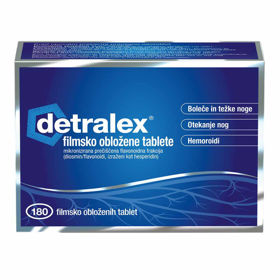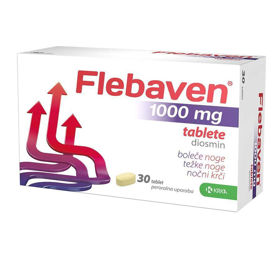Customer Questions
Some common and less common customer questions about hemorrhoids.
What are occasional hemorrhoids?
If you have recurring hemorrhoids, this is a sign that something needs to change. Topical medications (e.g., Detralex) can provide short-term treatment by reducing symptoms. But if you want lasting relief, you need to treat the cause of your hemorrhoids. This means changing those lifestyle habits that cause hemorrhoids.
For hemorrhoids, these causes usually include: pushing too hard during bowel movements, standing or sitting for too long without changing your actions, eating a diet with too little fiber, etc.
Are there over-the-counter medications for hemorrhoids?
The medicine Detralex is issued without a prescription. However, the doctor in his regular practice often prescribes the mentioned medicine on a white prescription.
Fear of examining hemorrhoids - what to do?
Hemorrhoids happen to many people, not just you. So please don't be embarrassed when you get it, and don't be afraid to talk to your doctor about it. Admit your embarrassment. Admit that what you are going through is difficult to talk about. A diagnosis of hemorrhoids may seem unpleasant, but it is much better than more serious conditions associated with a bleeding anus, such as anal cancer. And doctors are experienced in such matters - so there is no need to be embarrassed in the examination room.
Is the examination for hemorrhoids painful?
It is usually not painful and may involve a visual inspection. A doctor can diagnose external hemorrhoids by examining the area around the anus. To diagnose internal hemorrhoids, your doctor will perform a digital rectal exam and may perform procedures to examine the anus and rectum.
Why is the consumption of fiber so crucial for hemorrhoids?
Eating foods high in fiber can help make stools softer and easier to pass and can help treat and prevent hemorrhoids. In addition, drinking water and other liquids, such as fruit juices and soups, can help the fiber in your diet work better.
Why can pregnancy and childbirth cause hemorrhoids?
It is typical and widespread for women to have swollen rectal veins or hemorrhoids after giving birth. They occur when your growing uterus and baby put pressure on a large vein that carries blood from your legs to your heart. Constipation also contributes to postpartum hemorrhoids. Hemorrhoids are usually caused by increased pressure on the lower part of the rectum. As a result, hemorrhoids can develop during and after pregnancy. In addition, they are ubiquitous after vaginal birth.
Interesting reading: Swelling of one leg
Interesting reading: Tablets for hemorrhoids











